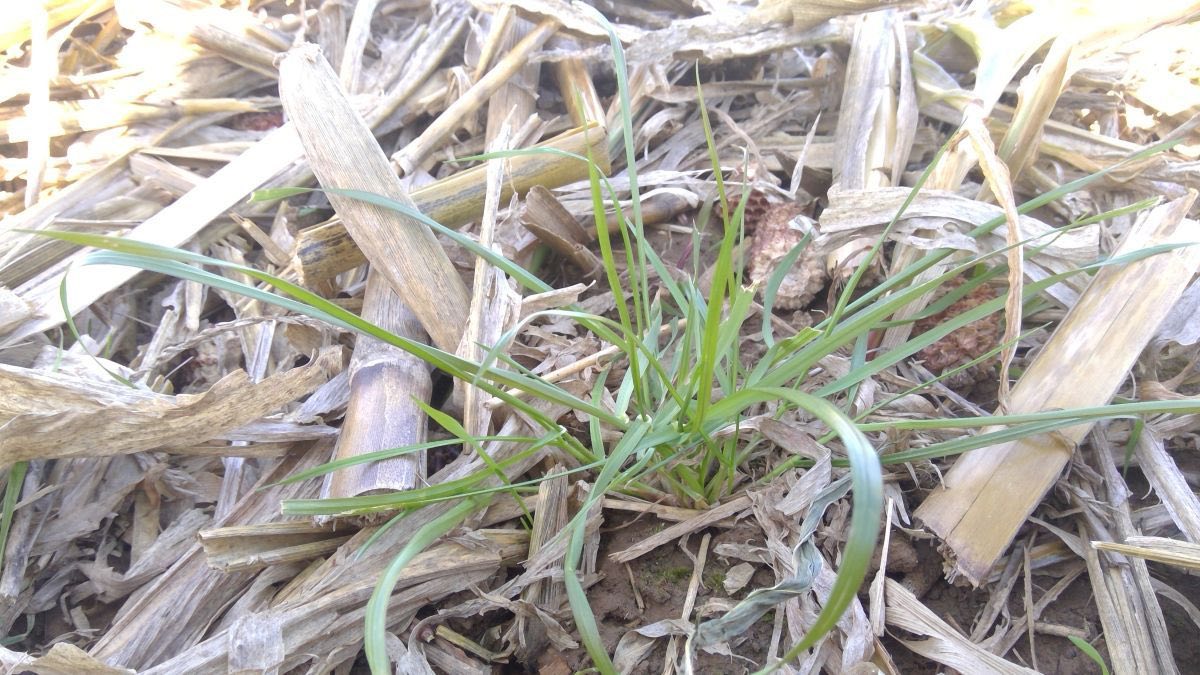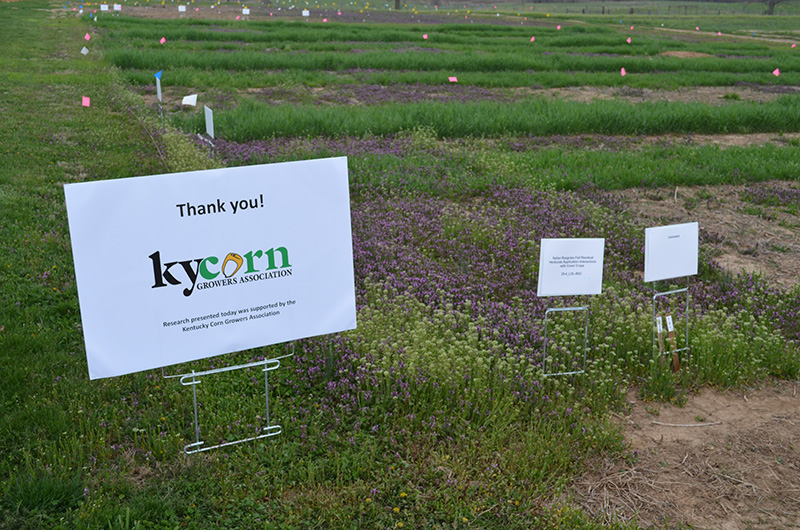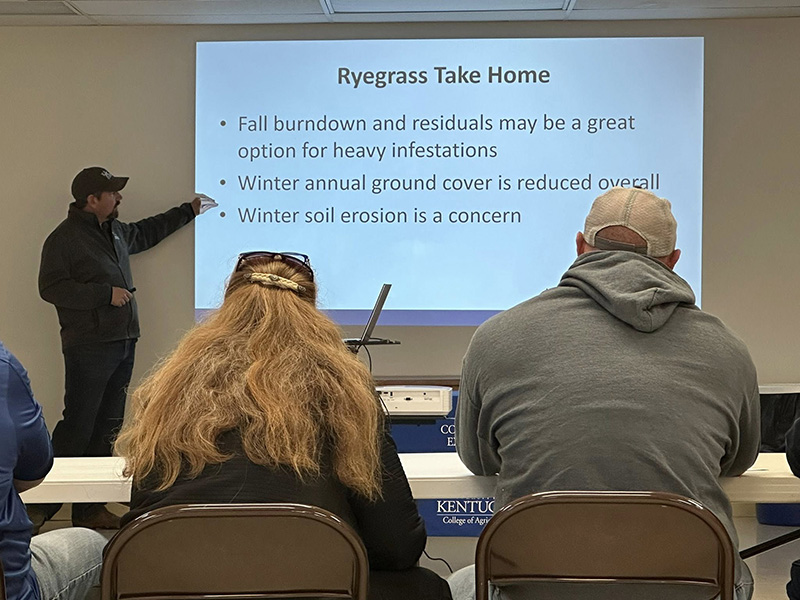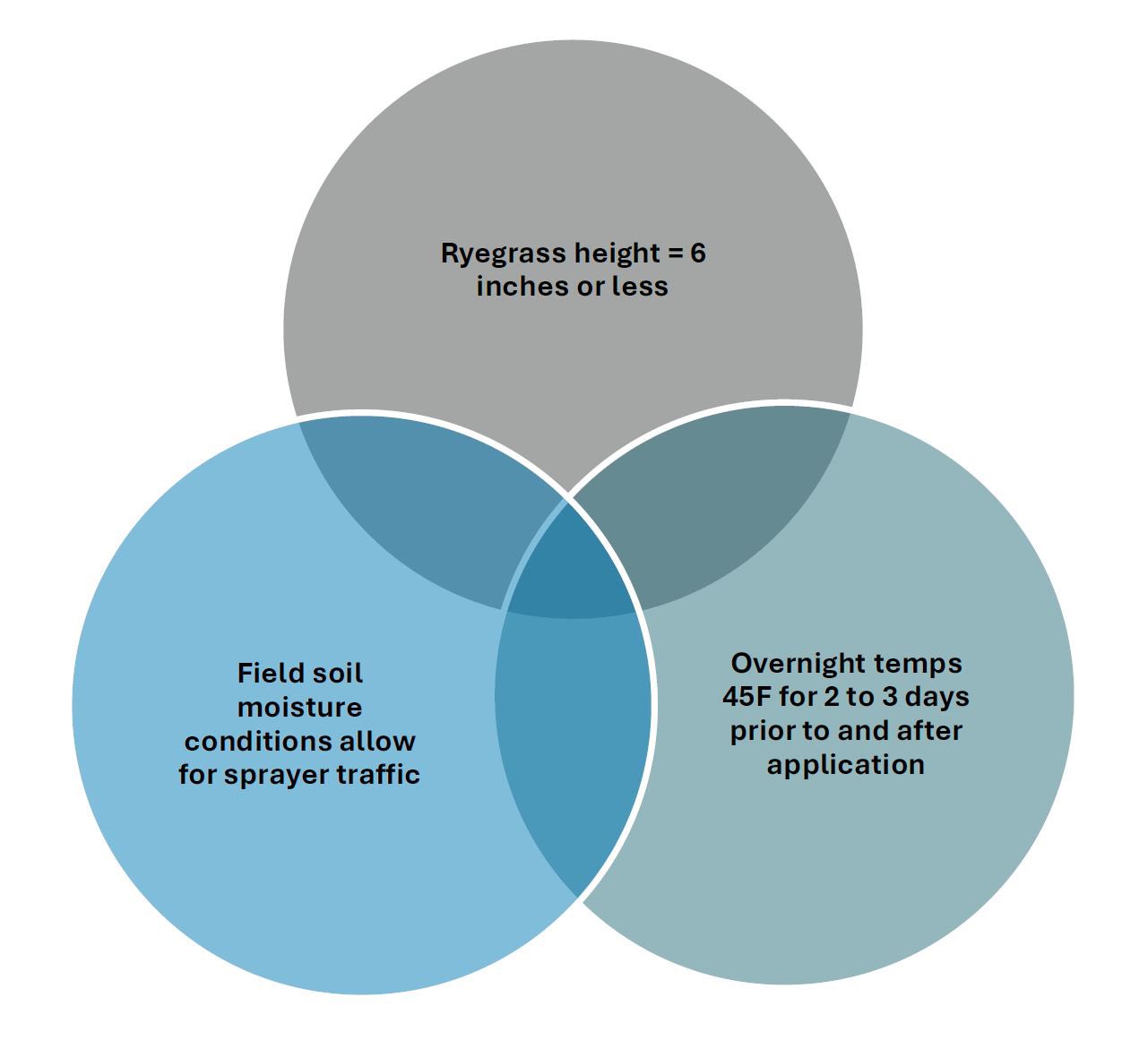Ryegrass field tour doubles in attendance in second year
Ryegrass field tour doubles in attendance in second year
Published on April 30, 2025

 Once categorized as solely a perennial problem in wheat, Italian ryegrass has increasingly become problematic in all of Kentucky’s major agronomic crops, now affecting no-till corn and soybean acres. Italian ryegrass if left uncontrolled in corn can cause yield losses of up to 60% and has been known to force farmers to replant corn fields.
Once categorized as solely a perennial problem in wheat, Italian ryegrass has increasingly become problematic in all of Kentucky’s major agronomic crops, now affecting no-till corn and soybean acres. Italian ryegrass if left uncontrolled in corn can cause yield losses of up to 60% and has been known to force farmers to replant corn fields.
To assist ag professionals in gaining a new respect and control of the worrisome weed, the second annual University of Kentucky Italian Ryegrass Field Tour was held March 27, 2025, at the UK Research and Education Center field plots in Princeton. Presented by UK Associate Extension Professor Dr. Travis Legleiter, participants toured field plots of Italian Ryegrass, where data-driven research was presented and options discussed to help Kentucky farmers gain maximum control.
Thirty-one Ag industry professionals attended the field tour, which is designed to host a smaller number of participants than a traditional field day. Still, the event saw attendance double from 2024, which had 15 Ag professionals register.
After the tour, attendees were surveyed on the event. The attendees responding to the survey indicated that 84% planned to make changes on their farms or recommend changes to their farm clients for ryegrass control based on the information presented at the field tour. Additionally, attendees were asked to report the number of acres they either farm, consult, or manage; as well as to report the value the field tour had on a dollar per acre basis. Survey respondents indicated that they represented over 2 million acres of corn, soybean, and wheat. 95% of the respondents indicated that the field tour was worth $5 to $20 per acre. Based on the reported acres and the response percentages of value per acre, a total value of $27.8 million was calculated for this event.
Many thanks to the Kentucky Corn Growers Association for sponsoring this research.



